What is Discovery Learning?
Discovery Learning is a teaching method follows the active, experiential, and inquiry-based learning. At its core, it is a method of instruction where students are encouraged to explore and uncover knowledge for themselves rather than being presented with information passively by a teacher.
This approach is based on the constructivist theories of learning, which posit that learners actively construct their understanding of the world through their experiences and interactions.
Discovery Learning, provides opportunities to the students to engage in hands-on activities, investigations, and problem-solving tasks that require them to think critically, make connections, and draw conclusions based on their observations and experiences. Insted of simply memorizing facts or following step-by-step instructions, students are challenged to explore, experiment, and discover new concepts and ideas independently or collaboratively with their peers.
Central to the concept of Discovery Learning is the idea that learning is a holistic and iterative process not based on the princiles to be presented with a pre-determined set of information. The students are encouraged to engage in exploration and experimentation, allowing them to face the challenges, also possible to make mistakes, and learn from their experiences. This process of discovery not only promotes deeper understanding and retention of content but also fosters the development of essential cognitive skills such as problem-solving, critical thinking, and creativity.
Discovery Learning is based on active engagement and unlike traditional forms of instruction where students may passively receive information, Discovery Learning requires students to actively participate in the learning process by taking an active role in their own learning. This active engagement is essential for promoting deeper levels of understanding and fostering a sense of ownership and autonomy over one’s learning journey.
Another important aspect of Discovery Learning is its emphasis on inquiry-based approaches. Instead of simply providing students with answers, teachers pose questions, problems, or challenges that stimulate curiosity and encourage students to explore and investigate the underlying concepts or principles. Through inquiry-based learning experiences, students learn not only what to learn but also how to learn, developing important skills such as information literacy, research skills, and self-directed learning abilities.
Discovery Learning promotes the development of critical thinking skills by encouraging students to evaluate information, analyze evidence, and make informed judgments based on their findings. By engaging in authentic, real-world tasks and problems, students learn to think critically, solve problems creatively, and approach complex issues from multiple perspectives.
in short The Discovery Learning offers a powerful alternative to traditional forms of instruction by providing students with opportunities to actively engage in the learning process, explore their interests, and discover knowledge for themselves. By embracing principles of inquiry, exploration, and discovery, educators can create dynamic and engaging learning environments that foster deep understanding, critical thinking, and lifelong learning skills in students.
The Concept of Discovery Learning
Discovery Learning is a dynamic pedagogical concept rooted in constructivist theories of learning, which posit that individuals actively construct their understanding of the world through experiences and interactions. At its essence, Discovery Learning shifts the focus from passive reception of information to active engagement and exploration. Rather than being mere recipients of knowledge, learners become proactive agents in their own learning process, embarking on journeys of discovery that promote deeper understanding and retention.
Central to the concept of Discovery Learning is the idea that learning is not a static transfer of information but a dynamic process of exploration and inquiry. Instead of relying solely on lectures and textbooks, educators design learning experiences that challenge students to actively engage with content, ask questions, and seek answers through hands-on activities, experimentation, and problem-solving tasks. This approach encourages students to make connections between new information and their prior knowledge, fostering a deeper and more meaningful understanding of concepts.
Discovery Learning emphasizes the importance of autonomy and self-direction in learning. Rather than following a rigid curriculum dictated by the teacher, students are encouraged to take ownership of their learning journey, exploring topics of interest and pursuing lines of inquiry that resonate with them. This autonomy not only increases motivation and engagement but also allows students to develop important skills such as self-regulation, time management, and independent thinking.
In addition to promoting autonomy, Discovery Learning also nurtures critical thinking skills by challenging students to analyze information, evaluate evidence, and draw logical conclusions. Through inquiry-based tasks and problem-solving activities, students learn to think critically, solve problems creatively, and approach complex issues from multiple perspectives. This process of critical inquiry not only deepens understanding but also equips students with the skills they need to navigate an increasingly complex and uncertain world.
Moreover, Discovery Learning fosters a culture of collaboration and communication, where students work together to explore ideas, share perspectives, and construct knowledge collectively. By engaging in collaborative learning experiences, students develop important social and emotional skills such as teamwork, empathy, and communication, which are essential for success in both academic and professional settings.
The concept of Discovery Learning represents a paradigm shift in education, moving away from passive forms of instruction towards active, student-centered approaches that prioritize exploration, inquiry, and discovery. Following the principles of autonomy, critical thinking, and collaboration, educators can create dynamic and engaging learning environments that empower students to become lifelong learners and active contributors to society.
Key Principles of Discovery Learning
Discovery Learning is based on Active Engagement
Active engagement involves students taking an active role in the learning process by participating in hands-on activities, experiments, and problem-solving tasks. Active engagement helps students to not only understand the material better but also retain the information for longer periods of time.
Actively participation in their learning, students are able to make connections between concepts, apply their knowledge in real-world situations, and develop critical thinking skills.
This type of learning also fosters a sense of ownership and responsibility for their education, leading to increased motivation and confidence in their abilities. Active engagement is a key component in creating a dynamic and effective learning environment for students.
Discovery Method Follows The Inquiry-Based Approach:
An inquiry-based approach is a teaching method that promotes student curiosity by encouraging them to ask questions, investigate problems, and discover answers on their own.
Educators use open-ended questions and real-world problems to spark students’ interest and motivate them to think critically. This approach helps students develop problem-solving skills and independent thinking. It also allows students to take control of their learning and gain a deeper understanding of the subject matter. Additionally, it fosters collaboration and communication skills as students work together to tackle complex challenges. Educators can create a vibrant and interactive learning environment that instills a lifelong passion for learning basd on cultivating a culture of inquiry,
Discovery Method is a Problem-Solving approach
The Discovery Method is a structured technique used to solve problems efficiently by applying learned knowledge, skills, and strategies to effectively identify and resolve complex issues. This method is essential for problem-solving tasks that require a systematic approach for successful outcomes. In Discovery Learning, students are presented with authentic problems or challenges that require them to apply their understanding of concepts in novel and meaningful ways. Through the process of problem-solving, students develop critical thinking skills and gain confidence in their ability to tackle real-world issues.
Critical Thinking
Critical thinking involves analyzing information, evaluating evidence, and making reasoned judgments based on evidence and logic. Discovery Learning promotes the development of critical thinking skills by encouraging students to examine information critically, consider multiple perspectives, and draw well-reasoned conclusions. This ability to think critically is essential for navigating complex issues and making informed decisions in various contexts.
Autonomy and Self-Direction:
Autonomy refers to the ability to take ownership of one’s learning process and make independent choices. Discovery Learning, students are given autonomy to explore topics of interest, pursue lines of inquiry, and set their own learning goals. This autonomy fosters a sense of responsibility and self-direction, empowering students to become active participants in their learning journey.
Benefits of Discovery Learning
The benefits of Discovery Learning extend beyond academic achievement to encompass the development of essential skills and dispositions needed for success in the 21st century. By fostering a love of learning, promoting critical thinking, and empowering students to become active agents in their education, Discovery Learning prepares students to thrive in a rapidly changing world.
Enhanced Retention and Understanding
Development of Cognitive Skills:
Motivational Impact:Discovery Learning promotes deeper understanding and retention of concepts by actively engaging students in the learning process. Through hands-on exploration and inquiry-based activities, students develop a more profound understanding of content that extends beyond surface-level memorization.
Discovery Learning cultivates essential cognitive skills such as critical thinking, problem-solving, and analytical reasoning. By grappling with real-world problems and engaging in inquiry-based tasks, students hone their ability to think critically, analyze information, and apply knowledge in novel situations.
Discovery Learning increases student motivation and engagement by providing opportunities for autonomy and self-direction. When students have the freedom to explore topics of interest and pursue their own lines of inquiry, they are more likely to be intrinsically motivated to learn and actively participate in the learning process.
Real-World Application: Discovery Learning encourages students to apply their knowledge and skills in authentic, real-world contexts. By engaging in hands-on activities, simulations, and problem-solving tasks, students develop practical skills that are directly applicable to their lives and future careers.
Fostering Creativity: Discovery Learning stimulates creativity and innovation by encouraging students to think outside the box and explore unconventional solutions to problems. Through open-ended exploration and experimentation, students develop the confidence to take risks, think creatively, and generate new ideas.
Impact on Cognitive Development
Discovery Learning has a profound impact on cognitive development by promoting active engagement, higher-order thinking skills, and the transfer of learning. By aligning with theoretical frameworks such as Piaget’s theory of cognitive development and Vygotsky’s Zone of Proximal Development, Discovery Learning provides a rich and stimulating environment for cognitive growth and development.
Piagetian Perspective
Discovery Learning aligns with Piaget’s theory of cognitive development, which emphasizes the importance of active exploration and interaction with the environment in shaping cognitive structures.
According to Piaget, children construct their understanding of the world through processes such as assimilation and accommodation. Discovery Learning provides opportunities for students to actively engage with content, which promotes the development of cognitive structures and schemas.
Development of Higher-Order Thinking Skills
Discovery Learning fosters the development of higher-order thinking skills, including critical thinking, problem-solving, and metacognition.
Through inquiry-based tasks and problem-solving activities, students are challenged to analyze information, evaluate evidence, and make reasoned judgments. These cognitive processes promote the development of higher-order thinking skills that are essential for academic success and lifelong learning.
Zone of Proximal Development (ZPD)
Discovery Learning supports Vygotsky’s concept of the Zone of Proximal Development, which posits that learning occurs most effectively within the range of tasks that are challenging but achievable with scaffolding.
In Discovery Learning, educators provide scaffolding and support to help students navigate challenging tasks and reach their full potential. By providing just enough support to facilitate learning without impeding progress, educators can help students stretch their cognitive abilities and achieve higher levels of understanding.
Active Engagement and Retention
Discovery Learning promotes active engagement in the learning process, which enhances retention and understanding of content. When students are actively engaged in exploring and discovering concepts through hands-on activities and inquiry-based tasks, they are more likely to retain information and develop a deeper understanding of content. This active engagement stimulates cognitive processes such as encoding and consolidation, which contribute to long-term memory storage.
Transfer of Learning
Discovery Learning facilitates the transfer of learning to new contexts and situations, promoting flexible and adaptive thinking.
Explanation: By engaging in authentic, real-world tasks and problems, students learn to apply their knowledge and skills in novel situations. This transfer of learning reflects a deeper level of understanding and mastery that goes beyond rote memorization and enables students to adapt to new challenges and environments.
Challenges and Considerations in Discovery Learning
Discovery Learning offers numerous benefits for student engagement, understanding, and skill development, it also presents challenges and considerations that educators must address. By addressing challenges such as time constraints, assessment methods, teacher support, individual differences, and curriculum alignment, educators can create rich and meaningful Discovery Learning experiences that promote deep learning and student success.
Time and Resources
Designing inquiry-based activities, creating hands-on materials, and providing scaffolding and support for students can be time-consuming and resource-intensive. Educators may face challenges in balancing the demands of Discovery Learning with other curricular requirements and constraints.
Assessment Methods
Assessing student learning and progress in Discovery Learning environments can be challenging due to the emphasis on open-ended exploration and inquiry.
Traditional assessment methods such as standardized tests and quizzes may not accurately capture the depth and complexity of student learning in Discovery Learning settings. Educators may need to develop alternative assessment strategies that align with the principles of Discovery Learning, such as performance-based assessments, portfolios, or authentic tasks.
Teacher Role and Support
The shift from a teacher-centered to a student-centered approach in Discovery Learning requires a redefinition of the teacher’s role and responsibilities. In Discovery Learning environments, educators serve as facilitators and guides rather than lecturers or knowledge transmitters. This shift may require additional training and support for educators to effectively implement Discovery Learning strategies and provide appropriate scaffolding and support for students.
Individual Differences
Challenge: Meeting the diverse needs and learning styles of students in Discovery Learning environments can be challenging. Explanation: Students vary in their backgrounds, experiences, interests, and abilities, which may impact their engagement and success in Discovery Learning activities. Educators must differentiate instruction and provide multiple entry points for students to access content and demonstrate understanding.
Integration with Curriculum Standards
Aligning Discovery Learning activities with curriculum standards and learning objectives can be challenging. While Discovery Learning offers opportunities for authentic and meaningful learning experiences, educators must ensure that these experiences address essential knowledge and skills outlined in curriculum standards. Finding a balance between exploration and content coverage can be a challenge in Discovery Learning implementation.
Role of the Educator in Discovery Learning
Discovery Learning, the role of the educator undergoes a significant transformation from that of a traditional instructor to that of a facilitator, mentor, and guide. Rather than being the sole source of knowledge and information, educators in a Discovery Learning environment serve as facilitators who support and scaffold students’ learning experiences, guiding them through the process of exploration and discovery. This shift in role is essential for fostering student autonomy, independence, and critical thinking skills.
One of the primary roles of the educator in Discovery Learning is to design and create learning environments that are conducive to exploration, inquiry, and discovery. Educators must carefully select and design learning activities, materials, and resources that engage students’ curiosity, stimulate their interests, and encourage active participation. This may involve providing hands-on materials, designing open-ended tasks or problems, and creating opportunities for collaboration and discussion among students.
Additionally, educators play a crucial role in providing scaffolding and support to help students navigate the challenges and complexities of the learning process. Scaffolding refers to the support structures, guidance, and assistance that educators provide to help students develop their understanding and skills. This may involve modeling problem-solving strategies, asking probing questions, providing hints or cues, and offering feedback and encouragement to students as they work through challenges.
Furthermore, educators in a Discovery Learning environment act as facilitators of inquiry, guiding students through the process of asking questions, exploring ideas, and making connections. By posing thought-provoking questions, encouraging curiosity, and promoting critical thinking, educators can help students develop their inquiry skills and become active participants in their own learning.
Another important role of the educator in Discovery Learning is to foster a supportive and collaborative learning community where students feel safe to take risks, make mistakes, and learn from their experiences. Educators must create a culture of respect, trust, and collaboration where students feel empowered to share their ideas, ask questions, and engage in meaningful dialogue with their peers.
Additionally, educators play a critical role in assessing and evaluating student learning in a Discovery Learning environment. Rather than relying solely on traditional forms of assessment such as tests and quizzes, educators may use a variety of formative assessment techniques such as observations, discussions, student reflections, and portfolio assessments to monitor student progress, provide feedback, and adjust instruction accordingly.
Overall, the role of the educator in Discovery Learning is multifaceted and dynamic, encompassing elements of facilitation, support, guidance, and assessment. By embracing this role, educators can create rich and engaging learning experiences that empower students to explore their interests, develop their skills, and become independent and lifelong learners.
Implementing Discovery Learning
Implementing Discovery Learning in educational settings requires careful planning, strategic decision-making, and a commitment to fostering an environment that encourages exploration, inquiry, and discovery. Educators must consider various factors, including curriculum design, instructional strategies, classroom environment, and assessment practices, to effectively integrate Discovery Learning into their teaching practice. Here are some practical strategies for implementing Discovery Learning:
Curriculum Design and Classroom Managment
Align curriculum goals and objectives with the principles of Discovery Learning. Identify key concepts, skills, and competencies that lend themselves to discovery-based approaches. Design open-ended, inquiry-based learning tasks and projects that promote exploration and critical thinking. Create a flexible and dynamic learning environment that supports exploration and experimentation. Provide access to a variety of resources, materials, and tools to facilitate inquiry and discovery.
Teacher Support and Guidance
Serve as a facilitator and guide, rather than a lecturer or authority figure. Offer scaffolding and support to help students navigate complex tasks and challenges. Encourage student autonomy and self-directed learning by providing opportunities for choice and decision-making.
Assessment Practices
Use a variety of formative assessment techniques to monitor student progress and understanding. Assess not only students’ knowledge and skills but also their ability to think critically, solve problems, and make connections. Provide timely and constructive feedback to help students reflect on their learning and identify areas for growth.
Professional Development
Provide ongoing training and support for educators to develop the skills and knowledge needed to implement Discovery Learning effectively.Offer opportunities for collaboration, peer observation, and reflection to share best practices and troubleshoot challenges.
Parent and Community Engagement
Communicate with parents and caregivers about the goals and benefits of Discovery Learning. Encourage family involvement in students’ learning by providing resources and suggestions for extension activities at home. Partner with community organizations, museums, and other institutions to enhance students’ learning experiences through real-world connections and experiences. Incorporate hands-on activities, experiments, and investigations that allow students to explore concepts firsthand. Encourage students to ask questions, make predictions, and formulate hypotheses. Provide opportunities for collaborative learning, peer discussion, and knowledge sharing.
Examples of Discovery Learning
Discovery Learning can take various forms and occur in a wide range of contexts, both inside and outside the classroom. Here are some examples of Discovery Learning in action:
- Science Experiments: Students are given materials and equipment to conduct experiments in the laboratory. They formulate hypotheses, design procedures, collect data, and draw conclusions based on their observations and findings. Through hands-on experimentation, students discover scientific principles and concepts, such as the laws of motion, properties of matter, and chemical reactions.
- Problem-Based Learning: Students are presented with real-world problems or scenarios that require them to apply their knowledge and skills to find solutions. For example, in a mathematics class, students may be tasked with designing a bridge that can withstand a certain amount of weight using geometric principles and engineering concepts. By working collaboratively to solve the problem, students discover the relevance and application of mathematical concepts in a practical context.
- Inquiry-Based Research Projects: Students are given the opportunity to pursue their interests and conduct independent research on topics of their choice. They formulate research questions, gather information from various sources, analyze data, and present their findings to their peers. Through the process of inquiry-based research, students discover new knowledge, develop critical thinking skills, and deepen their understanding of the subject matter.
- Field Trips and Outdoor Education: Students participate in field trips or outdoor expeditions that allow them to explore natural environments, historical sites, or cultural landmarks. For example, students may visit a local nature reserve to study ecosystems, identify plant and animal species, and collect data for ecological research projects. By engaging in hands-on exploration and observation in real-world settings, students discover the interconnectedness of the natural world and gain a deeper appreciation for the environment.
- Simulations and Role-Playing Activities: Students engage in simulations or role-playing activities that simulate real-world scenarios and situations. For instance, in a social studies class, students may participate in a simulation of a historical event or political process, such as a mock trial or a model United Nations debate. Through role-playing and simulation, students gain insights into complex issues, develop empathy and perspective-taking skills, and discover the dynamics of human interaction and decision-making.
- Multimedia and Technology-Based Learning: Students use multimedia resources, digital tools, and interactive software to explore concepts and ideas in a dynamic and engaging way. For example, students may use virtual reality simulations to explore ancient civilizations, interactive simulations to study scientific phenomena, or educational games to reinforce math and language skills. By interacting with multimedia and technology-based resources, students discover new perspectives, engage with complex concepts, and develop digital literacy skills.
These examples demonstrate the diverse ways in which Discovery Learning can be implemented to promote active, experiential, and inquiry-based learning experiences for students across different subject areas and grade levels. Whether it’s conducting experiments in the laboratory, solving real-world problems, conducting research projects, exploring outdoor environments, engaging in simulations, or utilizing multimedia resources, Discovery Learning offers students the opportunity to discover knowledge, develop critical thinking skills, and become active participants in their own learning journey.
Characteristics of Discovery-based Learning
Discovery-based learning is characterized by several key features that distinguish it from traditional forms of instruction. These characteristics emphasize active engagement, inquiry, exploration, and autonomy in the learning process. Here are some of the main characteristics of discovery-based learning:
- Active Engagement: Discovery-based learning encourages students to actively participate in the learning process through hands-on activities, experiments, and problem-solving tasks. Rather than passively receiving information, students are actively involved in exploring concepts, making observations, and drawing conclusions based on their experiences.
- Inquiry-Based Approach: Central to discovery-based learning is the use of an inquiry-based approach, where students are encouraged to ask questions, seek answers, and investigate phenomena on their own. Teachers act as facilitators, guiding students through the process of inquiry and helping them develop critical thinking and problem-solving skills.
- Student-Centered Learning: In discovery-based learning, the focus is on the needs and interests of the students. Learning experiences are designed to be learner-centered, allowing students to take ownership of their learning and pursue topics that are meaningful and relevant to them. Teachers tailor instruction to accommodate individual learning styles, preferences, and abilities.
- Problem-Solving Orientation: Discovery-based learning emphasizes the development of problem-solving skills. Students are presented with authentic, real-world problems or challenges that require them to apply their knowledge and skills to find solutions. Through the process of solving problems, students learn to think critically, analyze information, and make informed decisions.
- Constructivist Principles: Discovery-based learning is grounded in constructivist theories of learning, which suggest that learners actively construct their understanding of the world through their experiences and interactions. Students build on their prior knowledge and experiences to construct new knowledge, concepts, and mental models.
- Autonomy and Self-Direction: Discovery-based learning promotes autonomy and self-direction in the learning process. Students are encouraged to take initiative, set goals, and manage their own learning experiences. Teachers provide guidance and support as needed, but students are ultimately responsible for directing their own learning.
- Authentic Learning Experiences: Discovery-based learning emphasizes the use of authentic, real-world learning experiences that are relevant and meaningful to students. This may involve engaging students in fieldwork, simulations, role-playing activities, or projects that simulate real-world contexts and situations.
- Collaborative Learning: Discovery-based learning often involves collaborative learning experiences where students work together in groups to explore concepts, solve problems, and share ideas. Collaboration promotes peer interaction, communication skills, and teamwork, allowing students to learn from one another and construct knowledge collectively.
Discovery-based Learning: Advantages and Disadvantages
Exploring the advantages and disadvantages of discovery-based learning provides a nuanced understanding of its efficacy and challenges in educational settings. Here’s an analysis of both aspects:
Advantages
- Promotes Active Engagement: Discovery-based learning encourages active participation and engagement among students. By immersing themselves in hands-on activities, experiments, and problem-solving tasks, students become active agents in their learning process, leading to deeper understanding and retention of knowledge.
- Fosters Critical Thinking: One of the primary advantages of discovery-based learning is its emphasis on critical thinking skills. Through inquiry-based approaches and problem-solving tasks, students learn to analyze information, make connections, and draw conclusions independently, enhancing their ability to think critically and solve complex problems.
- Encourages Autonomy and Self-Directed Learning: Discovery-based learning empowers students to take ownership of their learning journey. By allowing them to explore topics of interest, set goals, and manage their own learning experiences, discovery-based learning promotes autonomy, self-direction, and intrinsic motivation among students.
- Supports Long-Term Retention: Research suggests that learning through discovery-based methods can lead to better long-term retention of knowledge compared to passive forms of instruction. By actively engaging with content and constructing their understanding, students develop a deeper and more enduring grasp of concepts and principles.
- Promotes Transferable Skills: Discovery-based learning not only facilitates the acquisition of subject-specific knowledge but also fosters the development of transferable skills such as problem-solving, communication, collaboration, and creativity. These skills are essential for success in the 21st-century workforce and beyond.
Disadvantages:
- Time-Intensive: Implementing discovery-based learning can be time-consuming, requiring careful planning, preparation, and facilitation on the part of educators. Teachers may need to invest significant time and resources in designing inquiry-based activities, providing support and guidance to students, and assessing their learning outcomes.
- Resource Constraints: Discovery-based learning often relies on access to a wide range of resources, materials, and equipment to facilitate hands-on exploration and experimentation. However, not all educational settings may have the necessary resources or infrastructure to support this approach, limiting its feasibility and effectiveness.
- Lack of Structure and Guidance: While discovery-based learning emphasizes student autonomy and self-direction, some students may struggle with the open-ended nature of inquiry-based tasks and the lack of explicit instruction or guidance. Without adequate support and scaffolding from educators, students may feel overwhelmed or unsure about how to proceed with their learning.
- Potential for Misconceptions: In discovery-based learning environments, students are encouraged to explore concepts and ideas independently, which can sometimes lead to the formation of misconceptions or incorrect understandings. Without the opportunity for corrective feedback or guidance from educators, students may reinforce misconceptions through repeated practice or experimentation.
- Assessment Challenges: Assessing student learning in discovery-based learning environments can be challenging due to the diverse and open-ended nature of inquiry-based tasks. Traditional forms of assessment such as tests and quizzes may not accurately capture the depth and complexity of student learning outcomes. Educators may need to explore alternative assessment methods such as portfolios, projects, or performance-based assessments to effectively evaluate student progress and understanding.
I. Introduction to Discovery Learning
Discovery learning stands as a beacon of innovation in educational methodology, offering a dynamic alternative to traditional didactic approaches. This section delves into the essence of discovery learning, defining its core principles and exploring its significance in contemporary education.
A. Definition of Discovery Learning
- Unveiling the Essence: Discovery learning embodies an educational paradigm where learners actively engage in exploration, experimentation, and inquiry to construct their understanding of concepts and phenomena.
- Active Participation: At its heart, discovery learning empowers students to take the reins of their education, fostering autonomy, curiosity, and intrinsic motivation.
- Shifting Perspectives: Unlike conventional instructional methods characterized by passive reception of knowledge, discovery learning places learners in the driver’s seat, prompting them to uncover insights through firsthand experiences.
B. Historical Context and Development
- Roots of Inquiry: The roots of discovery learning can be traced back to seminal thinkers such as John Dewey, who advocated for experiential learning and active engagement in education.
- Pioneering Voices: The mid-20th century saw the emergence of influential theories by luminaries like Jean Piaget, who emphasized the importance of cognitive development through exploration and discovery.
- Evolution of Pedagogy: Over time, discovery learning has evolved in response to advancements in educational psychology, technology, and pedagogical theory, shaping modern approaches to teaching and learning.
C. Significance in Contemporary Education
- Meeting 21st-Century Needs: In an era defined by rapid change and complexity, discovery learning equips students with essential skills such as critical thinking, problem-solving, and adaptability.
- Fostering Lifelong Learners: By instilling a sense of curiosity and self-directed inquiry, discovery learning cultivates a lifelong love of learning, empowering individuals to navigate an ever-evolving knowledge landscape.
- Addressing Diverse Learning Styles: Discovery learning accommodates diverse learning styles and preferences, offering a flexible framework that caters to the unique needs and interests of each learner.
B. Key Theorists in Discovery Learning
1. Jean Piaget
Jean Piaget, a towering figure in developmental psychology, laid the groundwork for discovery learning through his groundbreaking theories on cognitive development. This section illuminates Piaget’s profound influence on educational theory and practice.
A. Overview of Piaget’s Theory
- Stages of Development: Piaget proposed a comprehensive framework of cognitive development, delineating four distinct stages—sensorimotor, preoperational, concrete operational, and formal operational—each marked by qualitative shifts in thinking and understanding.
- Constructivism: At the core of Piaget’s theory lies the concept of constructivism, which posits that individuals actively construct their knowledge and understanding of the world through interaction with their environment.
- Schemas and Assimilation/Accommodation: Piaget introduced the concepts of schemas—mental frameworks for organizing and interpreting information—and the processes of assimilation (fitting new information into existing schemas) and accommodation (adapting existing schemas to incorporate new information).
B. Piaget’s Influence on Discovery Learning
- The Role of Exploration: Piaget emphasized the importance of exploration and discovery in cognitive development, asserting that children learn best when they actively engage with their environment and construct their understanding through firsthand experiences.
- Constructivist Pedagogy: Piaget’s theories laid the groundwork for constructivist approaches to education, which prioritize hands-on, experiential learning experiences that encourage students to explore, experiment, and make sense of the world around them.
- Implications for Educational Practice: Piaget’s insights have profoundly influenced educational practice, informing the design of discovery-oriented curricula, materials, and instructional strategies that aim to promote active engagement, critical thinking, and conceptual understanding among learners.
Jean Piaget’s enduring legacy as a pioneer in cognitive development continues to shape educational discourse and practice, underscoring the enduring relevance of discovery learning in fostering meaningful and transformative learning experiences.
2. Jerome Bruner
Jerome Bruner, a prominent figure in psychology and education, contributed significantly to the theory and practice of discovery learning. This section delves into Bruner’s influential ideas and their impact on educational philosophy and methodology.
A. Overview of Bruner’s Theory
- The Spiral Curriculum: Bruner proposed the concept of a spiral curriculum, which advocates for a progressive approach to learning where complex topics are revisited and explored in greater depth over time, allowing students to build upon their prior knowledge and understanding.
- Constructivist Perspective: Like Piaget, Bruner embraced a constructivist perspective on learning, emphasizing the active role of learners in constructing meaning through interaction with their environment and social context.
- Modes of Representation: Bruner highlighted the importance of different modes of representation—enactive, iconic, and symbolic—in cognitive development, suggesting that learners progress from concrete, action-based representations to more abstract and symbolic forms of understanding.
B. Bruner’s Influence on Discovery Learning
- Discovery Learning as Inquiry: Bruner advocated for discovery learning as a process of inquiry, where learners actively engage in exploration, experimentation, and problem-solving to construct their understanding of concepts and phenomena.
- Importance of Context and Culture: Bruner underscored the significance of cultural and social context in learning, emphasizing the role of language, narrative, and cultural artifacts in shaping learners’ interpretations and understanding.
- Scaffolding and Guided Discovery: Bruner introduced the concept of scaffolding, wherein educators provide structured support and guidance to help learners navigate challenging tasks and concepts, gradually withdrawing support as learners develop independence and mastery.
C. Educational Implications and Applications
- Curriculum Design: Bruner’s ideas have informed curriculum design and instructional practices, encouraging educators to design learning experiences that promote active engagement, exploration, and discovery.
- Pedagogical Strategies: Bruner’s emphasis on scaffolding and guided discovery has led to the development of instructional strategies that provide learners with the support and resources they need to succeed while promoting autonomy and independence.
- Lifelong Learning: Bruner’s humanistic approach to education underscores the importance of fostering a love of learning and a sense of intellectual curiosity that extends beyond the classroom, empowering learners to become lifelong seekers of knowledge and understanding.
Jerome Bruner’s profound insights into the nature of learning and cognition continue to shape educational theory and practice, highlighting the enduring relevance of discovery learning as a transformative approach to fostering meaningful and enduring learning experiences.
3. Lev Vygotsky
Lev Vygotsky, a seminal figure in developmental psychology, revolutionized our understanding of learning and cognition through his sociocultural theory. This section explores Vygotsky’s contributions to discovery learning and their implications for educational practice.
A. Overview of Vygotsky’s Theory
- Zone of Proximal Development (ZPD): Vygotsky introduced the concept of the Zone of Proximal Development, which represents the gap between what learners can accomplish independently and what they can achieve with the guidance and support of a knowledgeable other.
- Scaffolding: Central to Vygotsky’s theory is the notion of scaffolding, where educators provide structured support and guidance to help learners bridge the gap between their current level of understanding and their potential for development within the ZPD.
- Social Interaction and Learning: Vygotsky emphasized the role of social interaction and cultural context in learning, highlighting the importance of collaborative activities, peer interaction, and dialogue in shaping learners’ cognitive development.
B. Vygotsky’s Influence on Discovery Learning
- Collaborative Learning Environments: Vygotsky’s emphasis on social interaction and peer collaboration aligns closely with the principles of discovery learning, which often involve collaborative problem-solving, discussion, and shared exploration of concepts.
- ZPD and Guided Discovery: Vygotsky’s concept of the ZPD provides a theoretical framework for understanding the role of guided discovery in learning, where educators scaffold learners’ exploration and problem-solving efforts to facilitate meaningful learning experiences.
- Cultural Tools and Artifacts: Vygotsky’s emphasis on cultural tools and artifacts—such as language, symbols, and technologies—in mediating cognitive processes underscores the importance of providing learners with rich and meaningful learning environments that offer opportunities for exploration and discovery.
C. Educational Applications and Implications
- Peer Collaboration: Vygotsky’s ideas have led to the promotion of peer collaboration and cooperative learning strategies in educational settings, where students work together to solve problems, share ideas, and construct knowledge collaboratively.
- Scaffolding and Instructional Support: Educators can apply Vygotsky’s concept of scaffolding by providing targeted instructional support and guidance to help learners navigate challenging tasks and concepts, gradually fading support as learners develop competence and confidence.
- Culturally Responsive Teaching: Vygotsky’s emphasis on the cultural context of learning underscores the importance of culturally responsive teaching practices that honor students’ diverse backgrounds, experiences, and ways of knowing.
Lev Vygotsky’s enduring legacy as a pioneer in developmental psychology continues to shape educational theory and practice, highlighting the critical role of social interaction, scaffolding, and cultural context in facilitating meaningful and transformative learning experiences through discovery-based approaches.
Types of Discovery Learning
Discovery learning manifests in various forms, each offering unique opportunities for learners to engage in active exploration and inquiry. This section delineates different types of discovery learning approaches and their distinctive characteristics.
A. Guided Discovery
- Definition: Guided discovery involves providing learners with structured guidance and support as they explore concepts, solve problems, or conduct investigations.
Characteristics:
a. Scaffolding: Educators offer scaffolding to help learners navigate challenges and develop their understanding within a supportive framework.
b. Directed Exploration: Learners are encouraged to explore specific topics or concepts within a guided context, allowing for a balance between autonomy and instructional support.
c. Example: A science teacher presents students with a series of guided inquiry activities, providing prompts, resources, and support to help them investigate scientific phenomena and draw conclusions.
Pure Discovery
Definition: Pure discovery entails allowing learners to explore and discover concepts independently, without explicit guidance or instruction from educators.
Characteristics:
a. Self-Directed Exploration: Learners take the lead in determining the direction and scope of their exploration, relying on their curiosity and intrinsic motivation to guide their learning.
b. Open-Ended Inquiry: Activities are open-ended and unconstrained, allowing learners to pursue their interests and make discoveries through trial and error.
c. Example: A group of students engages in unstructured play in a natural outdoor environment, where they have the freedom to explore, experiment, and make discoveries about the natural world on their own.
C. Simulation and Gaming
Definition: Simulation and gaming involve the use of interactive simulations, virtual environments, or educational games to engage learners in discovery-based learning experiences.
Characteristics:
a. Immersive Environments: Learners interact with virtual simulations or gaming environments that replicate real-world contexts, allowing for experiential learning and exploration.
b. Role-Playing and Decision-Making: Activities may involve role-playing scenarios, problem-solving challenges, or decision-making tasks that require learners to explore and experiment with different strategies and outcomes.
c. Example: Students participate in a virtual simulation of historical events, where they take on the role of historical figures and make decisions that impact the course of history, promoting immersive and experiential learning.
D. Experimentation
- Definition: Experimentation entails hands-on exploration and investigation, where learners design and conduct experiments to test hypotheses, observe phenomena, and draw conclusions.
Characteristics:
a. Hypothesis Testing: Learners formulate hypotheses and design experiments to test their predictions, allowing for empirical investigation and scientific inquiry.
b. Data Collection and Analysis: Learners collect data, make observations, and analyze results to draw conclusions and construct knowledge based on evidence.
c. Example: Students in a chemistry laboratory conduct experiments to investigate chemical reactions, observe changes in properties, record data, and analyze results to deepen their understanding of chemical principles.
Each type of discovery learning offers unique benefits and opportunities for learners to engage in active exploration, inquiry, and discovery. By incorporating a variety of discovery-based approaches into educational practice, educators can create rich and meaningful learning experiences that foster curiosity, critical thinking, and lifelong learning skills among learners.
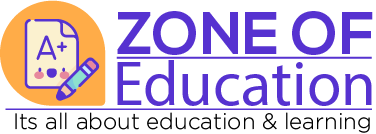
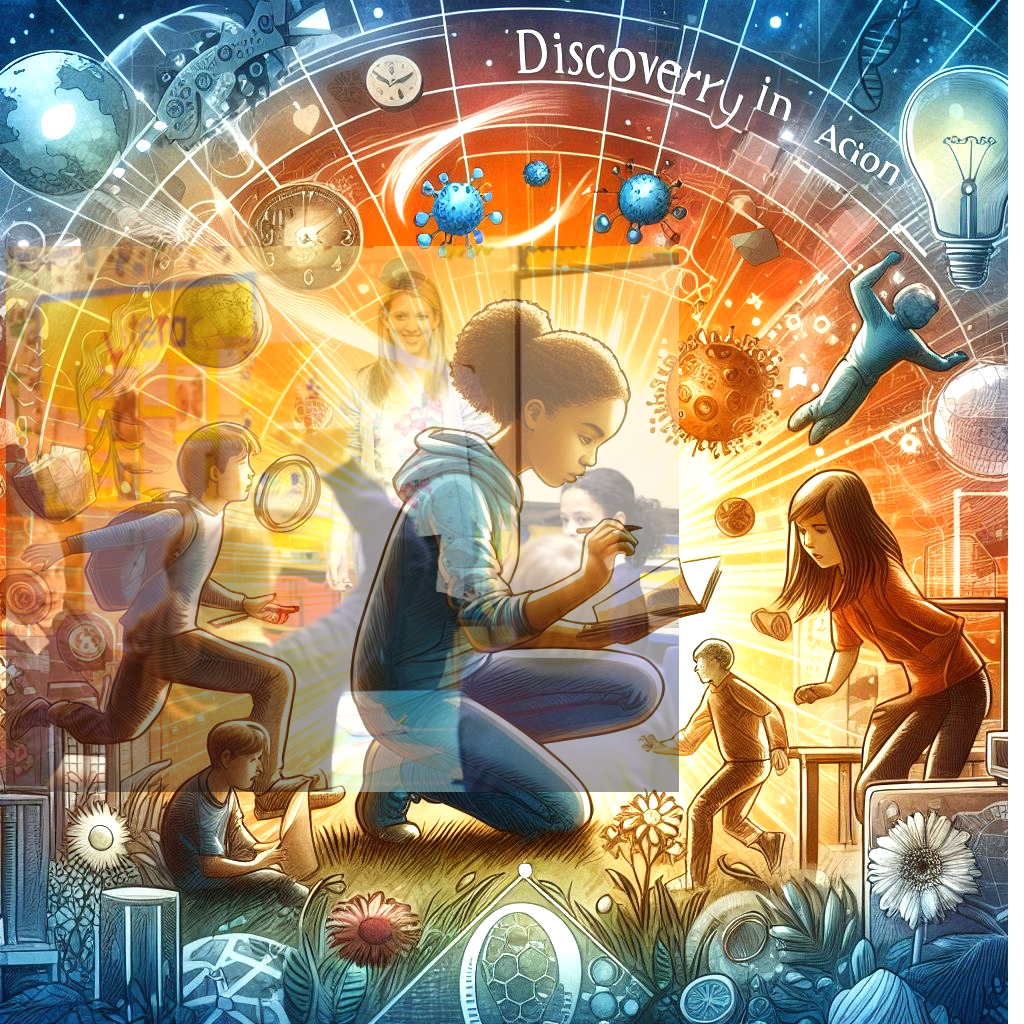
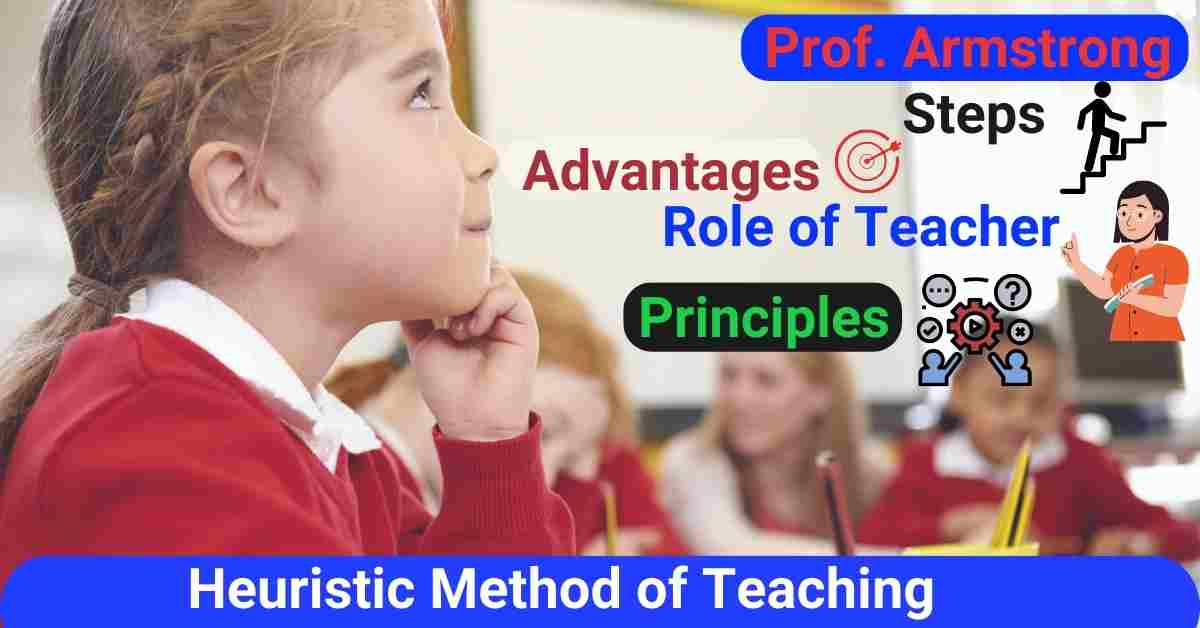
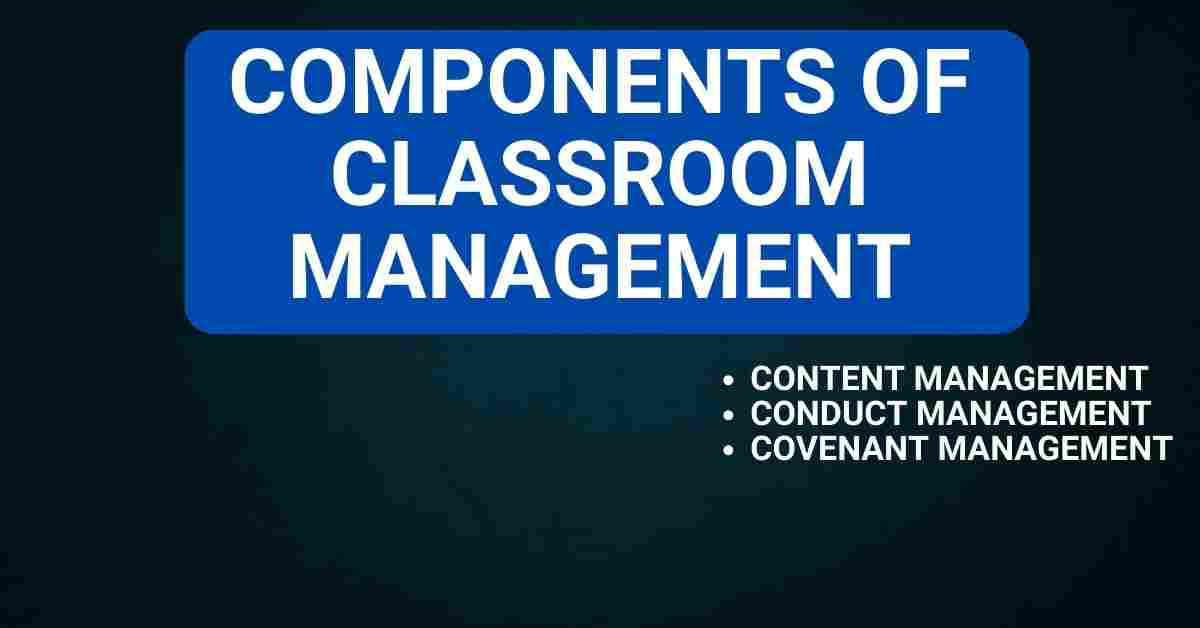
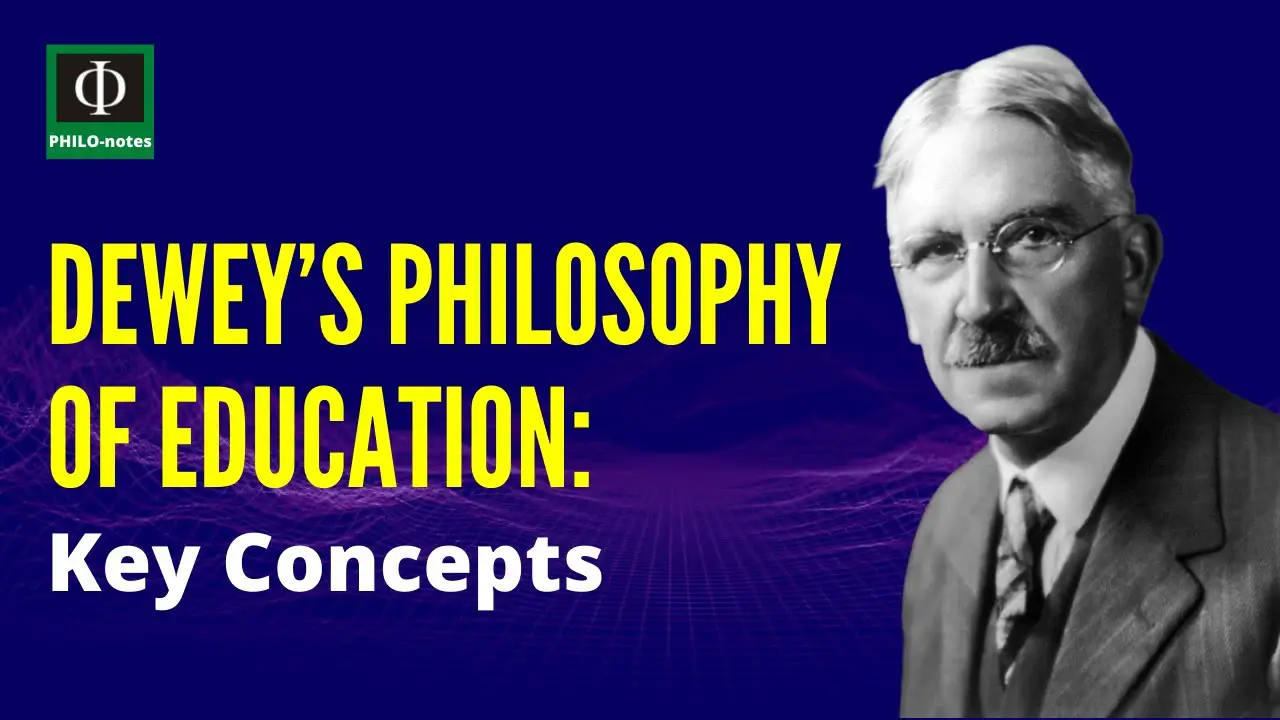

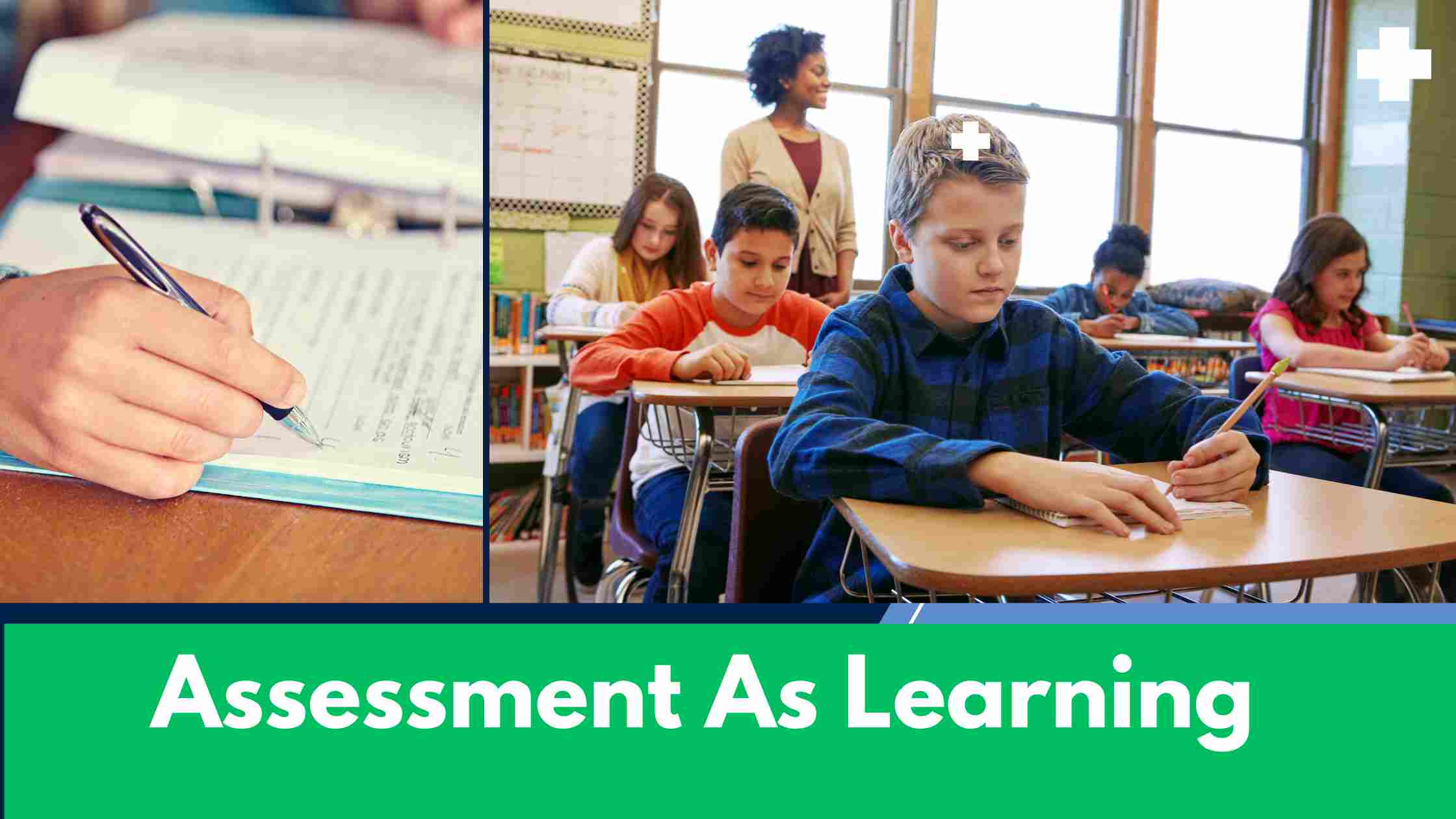
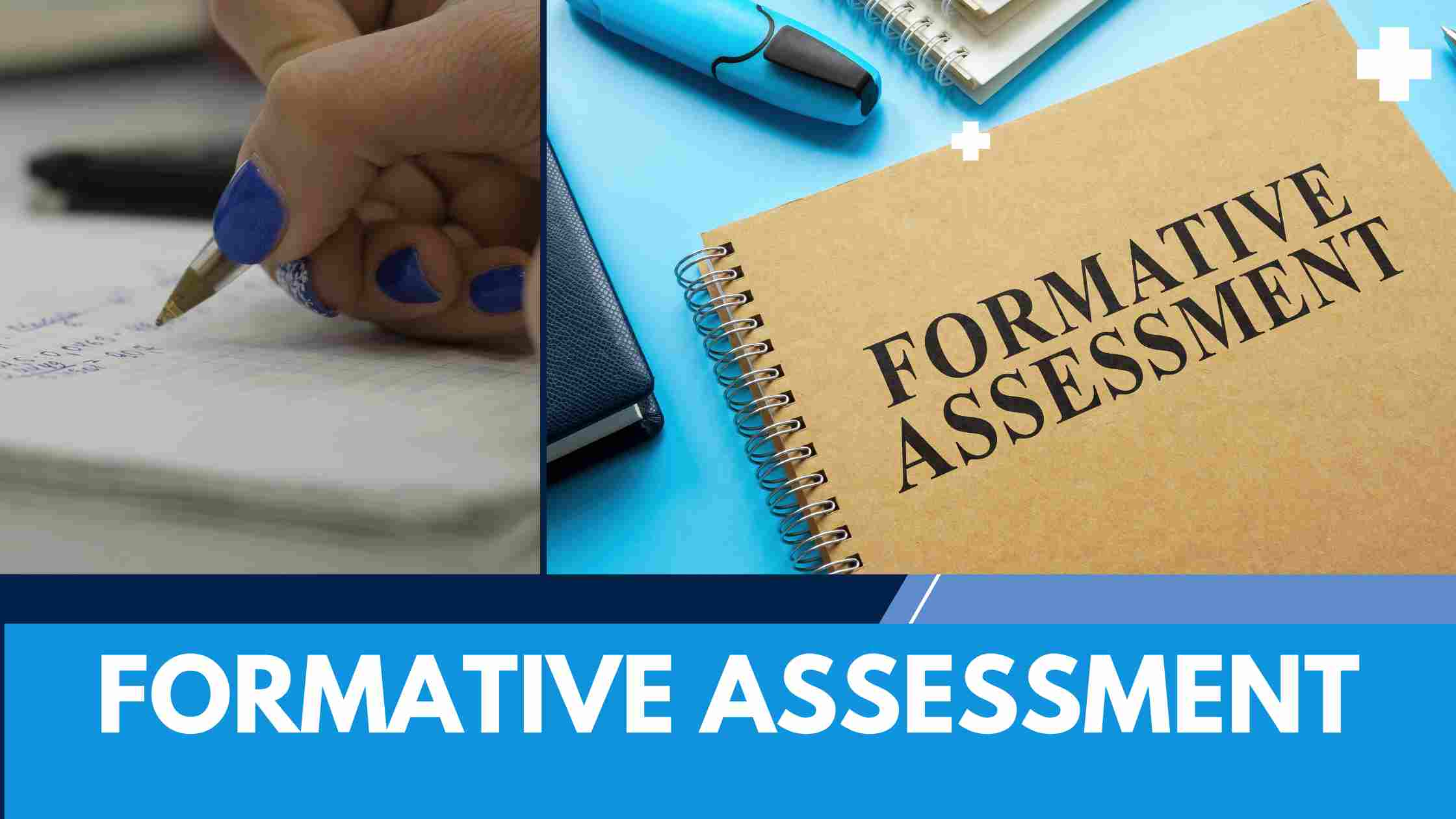
[…] Application: Active learning techniques allow students to apply their knowledge and skills in practical, authentic situations, preparing […]
[…] Collaborative Learning Techniques: […]
[…] E. L. Thorndike (1913): Educational Psychology is the study of the processes of learning, including the conditions that influence learning, the results of learning, and the ways of measuring these results. (This definition emphasizes the scientific approach to learning). […]
[…] set, encompassing not only a mastery of the subject matter but also a profound understanding of the principles and techniques of pedagogy. It is here that educational psychology assumes its pivotal role, equipping educators […]
[…] psychology, and educational psychology, among others. These subfields focus on using psychological principles and techniques to help individuals overcome psychological problems, improve mental health and well-being, enhance […]
[…] decrease as children learn basic emotional regulation techniques, often modeled by parents and […]
[…] to examine how learners in diverse contexts acquire knowledge, providing insights into universal principles of learning and […]